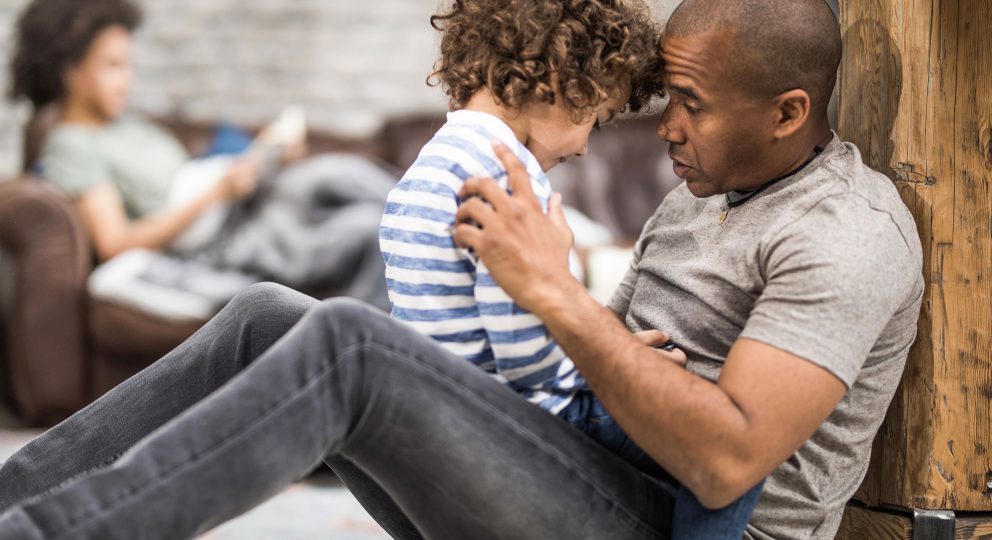In 1994, Drs. Gottman, Kahen, and Katz of the University of Washington conducted a study that examined how parenting behavior relates to a child’s ability to successfully interact with their peers. According to the researchers, previous exploration on the subject had yielded the following results: “Children of warm, involved, and moderately controlling parents are popular and are more likely to be socially competent than children with unresponsive, uninvolved, overly permissive, or overly controlling parents.”
Unfortunately, these previous studies failed to address several important questions: What are the different roles of the mother and father in the social development of their child? What is the relationship between specific processes in parent-child interaction and specific processes in peer interaction?
In this study, the researchers considered two categories of parent-child interaction: affect (positive vs. negative) and engagement (active engagement vs. withdrawal) in children between ages 4 and 6. Additionally, they considered two categories of child-peer interaction: Engagement in play and negativity or positivity of play.
Engagement in play was measured by the amount of positive parallel play, collective monologue, and common ground activities established during peer interaction. The child’s ability to exchange information and disclose thoughts and feelings were also examined as examples of peer engagement.
To index negativity and positivity, the researchers examined the amount of negative parallel play (which is an index of side-by-side play with high levels of negative affect), out of room behavior (which was an index of noncompliance with the instructions of the home taping), crying, anger, laughter, and joy during peer play. Negative and positive parental effects relate to children’s popularity among peers, pro-social behavior, and successful peer interaction.
Procedure:
This study consisted of a laboratory parent-child interaction session in which all three family members (mother, father, and child) were present, and a home visit with the child and a best friend in which peer interaction data was collected (best friends were chosen to estimate maximum social competence). It is interesting to note that, “for purposes unrelated to the present report,” the laboratory sessions took place inside a mock-up of the Apollo space capsule. The researchers explain:
“For purposes unrelated to the present report, a full-scale mock-up of the Apollo space capsule was constructed and astronaut spacesuits were made for the children for their laboratory visit. Parent-child interaction laboratory sessions took place with the child dressed in the spacesuit and seated in the space capsule.”
Prior to the 10-minute parent-child interaction, children were instructed to listen to a relatively uninteresting story read to them in a monotone voice. In the videotaped interaction, parents were instructed to question kids to obtain information about the story, and then asked to teach their kids to play a video game they had previously learned. The peer interaction home visit consisted of audio taping a 30-minute play session of the child and his/her best friend (no adults present).
Parenting styles were coded with the Kahen Engagement and Affect Coding Systems. Negative engagement codes were parental intrusiveness and command. Positive engagement was measured by high scoring in engagement (parental attention towards the child) and responsiveness to child’s needs. Negative affect was based on criticism (direct disparaging comments, put-downs), derisive humor (sarcasm or making fun at the child’s expense), and positive affect was based on codes for affection (praise, physical affection) and enthusiasm (cheering, excitement at child performance).
Results
The researchers discovered that children whose parents display negative behaviors during parent-child interaction may not learn conflict management skills and often spend more time playing by themselves.
Both parents have a strong influence in determining their child’s ability to engage in high levels of play with their peers. Children whose mothers abstained from criticism or derisive humor in the parent-child interaction were able to establish common ground activities and exchange information with their friends. Children whose fathers were affectively positive and responsive to their needs scored higher in self-disclosure (the most intimate level of play) during their peer play session.
In the parent-child play session, parent intrusiveness (physically taking over control of the video game they were trying to teach their child) and derisive humor (making fun of the child’s performance, being sarcastic) communicated incompetence and a lack of respect for the child’s efforts. Children whose parents were intrusive, disengaged, and used derisive humor were more likely to have negative peer play with their best friends (being angry, crying, making negative comments, not complying with task instructions).
Here, we see what Drs. Gottman, Katz, and Kahen call the direct transfer of behavior displayed toward children to their child’s interactions with peers, the hypothesis being that, “these children have more negative peer play because they are imitating their parent’s tendency to convey that others are incompetent and unworthy of respect.”
The results of this study make it clear that, while both parents have a huge impact on the development of their child’s interpersonal learning and behavior, each parent has a different role. One of the primary goals of the researchers in this study was to determine how mothers and fathers differ in the effects of their parenting behavior on children’s peer relationships and social skills. On Thursday, we look forward to sharing some of their fascinating findings!










